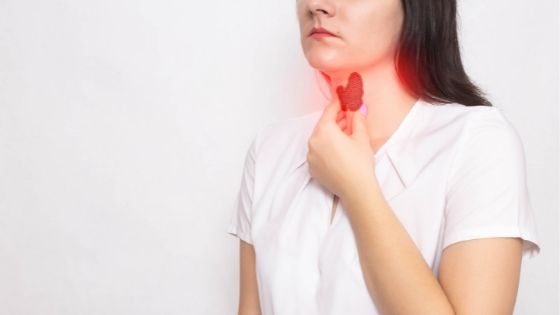Are you looking for information about hypothyroidism? In this article, we will go over everything you need to know about this condition. The information will include the symptoms, causes, and risks associated with hypothyroidism along with some information on how the condition is diagnosed and some of the potential complications that may come with it.

What is Hypothyroidism?
Hypothyroidism is a condition that occurs when your body isn’t producing enough thyroid hormones. Your thyroid is a small gland in a butterfly shape that sits right in front of your windpipe. It releases hormones for energy use and to help regulate your body.
The thyroid hormones are responsible for controlling functions such as your digestive system and how your heart beats. Without the proper thyroid levels, the natural functions in your body will start to slow down. You can find out more information about the optimal thyroid levels by visiting Dr. Ruscio’s blog. Dr. Ruscio is an expert of natural medicine, a clinical researcher, a Doctor of Chiropractic and a medical author.
Hypothyroidism is often also referred to as an underactive thyroid. This condition is most common in people over 60 and it’s more common in women than it is in men. It can be discovered as part of a routine blood test or after the symptoms start to show.
If you have received a diagnosis of hypothyroidism, it’s important to know that there is appropriate treatment available, and that this treatment is safe, simple, and effective. Most of the treatments involve replacing the low hormone levels with artificial forms of hormones. These artificial hormones will replace the ones that your body is failing to produce on its own. This then helps your body return to normal functioning.
What Signs and Symptoms Are Associated with Hypothyroidism?
The signs and symptoms of hypothyroidism will vary from person to person and can be quite difficult to identify. The severity of the condition can affect which symptoms appear when. As a result, you may not know that your symptoms are linked to your thyroid until more symptoms come along.
Some of the most common signs and symptoms of hypothyroidism include the following:
- Weight gain
- Constipation
- Fatigue
- Feeling cold
- Depression
- Decreased heart rate
- Decreased sweating
- Dry skin
- Memory problems
- Increased blood cholesterol
- Dry and thinning hair
- Weak muscles
- Stiff muscles
- Aches and pains in muscles
- Joint pain and stiffness
For many people, the symptoms of hypothyroidism progress gradually over the course of many years. As the thyroid begins to slow down more over time, the symptoms are often more easily identified. However, many of these symptoms are also common with ageing in general.
If you think you may have some of the symptoms of hypothyroidism, it’s important to speak to your doctor. They can then do a blood test to determine if you have the condition.
What Are the Causes of Hypothyroidism?
The most common causes of hypothyroidism are the following:
- Hashimoto’s thyroiditis
- Thyroid surgery
- Radioactive iodine treatments
- Certain medications
- Radiation therapy
- Iodine deficiency
What Risk Factors Are Involved with Hypothyroidism?
There are several factors that can increase your risk of developing hypothyroidism, including the following:
- Recent pregnancy
- Being female
- Being over 60
- Treatment with radiation therapy to the neck or chest
- Having certain autoimmune conditions
- A family history of thyroid problems
How is Hypothyroidism Diagnosed?
There are two main ways to diagnose hypothyroidism – a physical exam and a blood test. During a physical exam, you doctor will look for signs associated with hypothyroidism such as a slowed heart rate, slowed reflexes, dry skin, and swelling in the neck. Your doctor will also ask you to report any symptoms you’ve been experiencing.
Blood tests are the only reliable way to confirm hypothyroidism. Your blood test will determine if your thyroid is not producing enough hormones.
What Complications May Be Associated with Hypothyroidism?
There are several complications that may come with having hypothyroidism. These include the following:
- Heart problems
- Nerve injuries
- Goiter
- Carpel tunnel syndrome
- Peripheral neuropathy
- Obstructive sleep apnea
- Myxedema coma (in severe cases)
- Reduced kidney function
- Problems with balance
- Joint pain
- Mental health problems such as anxiety and depression
- Infertility
- High cholesterol
- Obesity
- Birth defects
- Preeclampsia and anemia when pregnant
Final Thoughts
As you get older, your body naturally goes through changes. However, if you start noticing a significant difference in the way you feel or how your body responds to certain things, speak to your doctor to see if you have a thyroid problem. If you are a female over 60 years of age, it’s important to remember that you are at higher risk of a thyroid condition.
If you have hypothyroidism, you will most likely need to take certain thyroid medications for the rest of your life. However, these medications will help relieve or resolve most of the symptoms.
